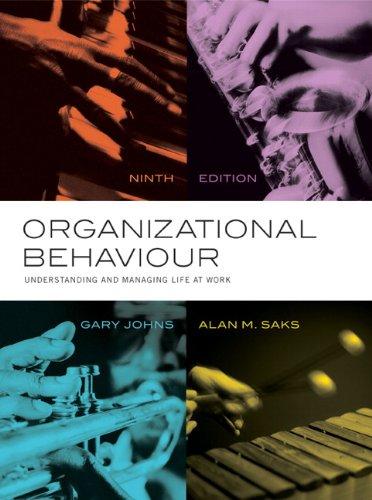The text message from Ashok stood out in bold block letters on the small screen of Josh
Question:
The text message from Ashok stood out in bold block letters on the small screen of Josh Lewis’s iPhone. Am I ever, Josh thought, stuffing the device back into his pocket and emphatically rolling his chair away from his PC and the backlit spreadsheets and formulas that had made his eyes bloodshot and his mood sour. He stood up, stretched, and took a minute to consider his plight: For the past three days, he’d been crunching U.S. and international film sales, attendance, and merchandising figures nonstop for his boss, Sarah Bennett, the marketing chief of the movie division of Rising Entertainment.
Bennett and her team were in the midst of prepping the promotions, advertising, and branding plan for the next Fire Force Five film; her presentation to the company’s CEO, its head of distribution, and other unit leaders was planned for Friday.
Two more days—many more hours, many more stats to go over before I sleep, the 23-year-old marketing associate estimated. He plunked himself back down in his chair. A recent graduate of the University of Southern California, Josh had had visions of making films that offered strong social commentary—like Al Gore’s An Inconvenient Truth or Morgan Spurlock’s Super Size Me—and distributing them on open platforms so that his message could reach the greatest number of people. With some championing from his uncle—a well-regarded TV producer who knew people who knew people—Josh joined Rising Entertainment, one of the top three multimedia production and distribution houses in the world. The company boasted large film, television, home video, music, and licensed merchandise units, with a catalogue of thousands of properties.
Josh expected that the studio, with its location in the heart of Los Angeles and satellite offices in six countries, would offer plenty of excitement and opportunity—ever-present TV and film shoots on the lots, hobnobbing with industry power brokers, the inevitable offers from competing studios, and, of course, the terrific LA nightlife. But now, with 10 months on job, and most of that time relegated to mundane ancillary projects that informed the bigger initiatives his boss was spearheading, Josh was feeling numb. Who would have thought that life in a big movie studio could be so routine? He thought to himself.
Suddenly there was that familiar vibration from his iPhone and another text message from Ashok: “WRUD? TAB?” A break sounded great. He replied immediately—” BRT”’—and set off for their favourite meeting spot. As he was heading out, it occurred to Josh that he should let Sarah know where he was. He fired off another quick text message.
QESTIONS
1. What are the sources of generational conflict between Josh Lewis and Sarah Bennett? How do their values differ?
2. What are the sources of job dissatisfaction for Josh? What are the sources of job dissatisfaction for Sarah? In both cases, consider discrepancy between wanted and received job outcomes and issues of fairness.
3. Was Josh correct to bypass Sarah and intervene directly with studio head Sam Smithstone?
4. In this series of events, could Josh have acted more effectively? Could Sarah have acted more effectively? In each case, explain your reasoning.
5. What should Sarah do right now? Should she punish Josh, or commend his diligence, or invite him to the meeting, or commandeer his ideas, or something else?
6. What should Sarah do in the longer term?
Step by Step Answer:

Organizational Behaviour Understanding And Managing Life At Work
ISBN: 9780133347500
9th Edition
Authors: Gary Johns, Alan M. Saks





